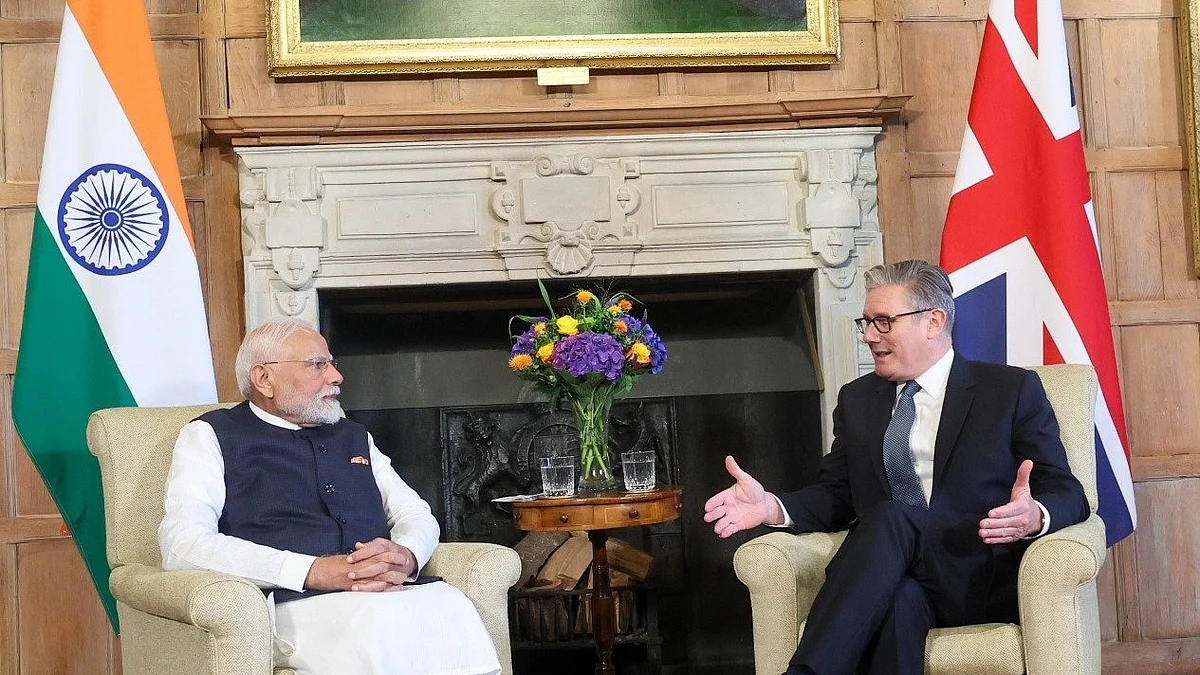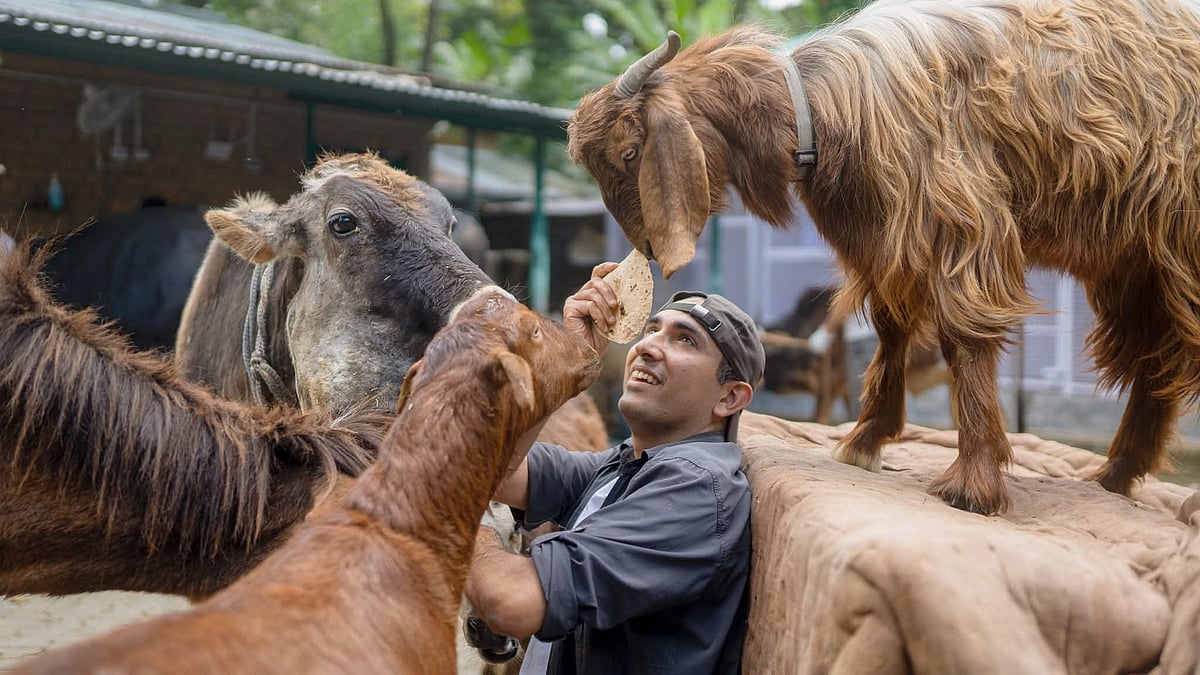From a nondescript village in Kerala to India’s financial capital Bombay, the journey of Madhav Krishna Bhaskar Nair (MKB to most colleagues) is a delightful insight into both the pre and post Independence days of economic and business journalism and perhaps life itself.

M.K.B Nair is not exactly as “unknown” Nair as he modestly claimed to be. Anybody in the communication field in the 60s, 70s and 80s would have re¬cognised the name of one of the distinguished media men of the times. Nobody in his professional circle, of course, called him ‘Nair’. To everyone he was MKB.
For some reason nobody has been able to fathom, R.K. Laxman who had his room in the Times of India, next to MKB’s would call his neighbours as Pillai. MKB took it in his stride. MKB, incidentally stands for Madhav Krishna Bhaskar. Hailing from a non descript village in Kerala, MKB made it big in the media world of Bombay and that is a story in itself. Starting with the Free Press Journal as early as 1943 as a junior sub-editor, MKP manfully ended up in The Times of India Group as deputy Editor of The Economic Times, no mean achievement.
In between MKB got involved in several other activities like serving for a time as a lecturer in a college in, of all places, Ethiopia (by one of those accidents of fate, he even chanced to meet the Emperor of Ethiopia in a hair-cutting saloon the Emperor most favoured to get an impromptu interview). Back in Bombay (the Mumbai of an earlier era) he set up a coaching class for tenth standard students in a room rented out by a Parel Church, besides teaching for a while at the prestigious Bombay Scottish High School, as well.
He indulged in translating Malayalam novels into English and even had one translation published part by part in The Illustrated Weekly of India, then the most popular weekly in the country. He was my colleague on the staff of the Free Press Bulletin and did an excellent job. He was soon to quit the Free Press Group to join The Times of India where he soon made his mark and was asked to join the staff of the newly-set up The Economic Times which called for a new approach in news editing, which he quickly mastered.

The Unknown Nair: An autobiography
M.K.B. Nair
Indus Source Books
Pages: 134; Price: Rs. 175 |
He decided that a pocket cartoon would enhance the paper’s readership, to which the paper’s editor Dr Rangnekar quickly agreed. Mario Miranda, the celebrated cartoonist was given the assignment. Called Miss Fonseca and the Boss, the cartoon became so popular that J.R.D Tata wanted to get the originals!
MKB was soon to get closer to the great industrialist whom he could call almost at any time to get a quote or a comment on some new economic project or development. Indeed, serving The Economic Times turned out for MKP, an occasion for meeting celebrities everywhere.
He wrote a Sunday column called ‘Face to Face’ which was soon to get very popular. He would receive letters of praise and the mail increased exponentially. One of his admirer turned out to be the former Maharaja of Kashmir, then serving as Indian Ambassador to Washington who wrote: “I do not know whether Mr M.K.B Nair is an insider or an outsider, but I like to read Face to Face”. The Ambassador promised that should Nair bring out a book he would be happy to write a Foreword to it.
For a time, Nair also served as a reporter of international events and did splendidly. One event he covered was the World Food Conference held in Rome. Another was the Fourth United Nations Conference on Trade and Development (UNCTAD) held in Nairobi in 1876. Coverage of that meeting made him a reporter celebrity practically overnight. He had an argument with
UNCTAD’s Secretary General Dr Gamani Correa, a Sri Lankan economist.
Told that the Conference had achieved precious little, Dr Correa blurted out some information of high importance like the setting up of a Common Fund to which India, apparently, had made a significant contribution. That was top secret news and MKB put out the story which irked Indira Gandhi, then India’s Prime Minister who thought that somebody had leaked the story in Delhi. MKB was charged with having a mole in the PM’s Office!
Overnight, as it were, MKB became an icon and when he returned to office from his Nairobi sojourn he was given a standing ovation by the entire staff! Getting close to leading lights in India and the world became, for MKB, almost standard practice.
He had been temporarily sent to Calcutta (now Kolkata) to take charge of the local edition of Times that gave him an opportunity to meet leaders like Odisha’s Chief Minister Janaki Ballabh Patnaik and West Bengal’s Chief Minister Jyoti Basu. In an interview with the communist lender MKB bluntly asked how come nothing was being done to improve the conditions of the rickshaw puller in the city.
Basu sounded outraged. He said: “Nobody can say when that can happen, but I would not be party to depriving 40,000 poorest of the poor a meagre living. It’s a shame on the city under the communist rule. But I cannot ignore reality. Nobody can do much about it right away, anyway”.
The Economic Times had other things it could boast of. Can one believe that at one time the paper had on its lowest staff two youngsters who went on, one to join the Indian Foreign Service and another the IAS (Indian Administrative Services).
The young man who got into the IAS, Sugathan was the son or a security personnel to whom MKB gave a lot of support. Once, when MKP undertook to edit a long and meandering thesis written by the Maharajah of Baroda, it was to Sugathan that he turned to, to get the whole edited MSS typed.
The Maharaja was pleased with the job and paid MKB well, half of which he shared with Sugathan who was later to go on and get a Masters from the University of Sussex and a Ph.D from Bombay.
MKB has so many stories to recount that the book, in the end, becomes unputdownable. MKB is the quintessential journalist who served as a reporter, sub-editor, Assistant Editor, Columnist, Foreign correspondent and can keep his reader enchanted without sounding pompons or seeking glorification, for himself. As he put it: “Once you get immersed in routine work, you forget day-to-day defeats and successes.”
One has failures to account for, but they are professional, not personal. MKB stays away from writing about his personal life, which is just as well. As a colleague, MKB and I got on very well. We both worked under S Sadanand, the renowned nationalist editor. He got married in 1962 and has had a happy married life. What more can one expect in one’s life? To read this book is to live life all over again.
M.V. KAMATH









